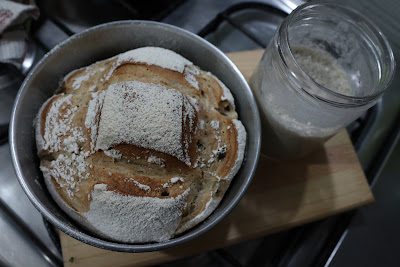7 Common Mistakes That Make Your Thai Curry Taste Bitter
Are you tired of making Thai curries that taste different from those you have tried at your favorite Thai restaurant? It can be frustrating to put in the time and effort to make a delicious Thai curry, only to find that it's too bitter. Fear not, for in this article, we will cover seven common mistakes that cause bitterness in Thai curries, and how to avoid them.
Use Galangal instead of Ginger
Ginger is a popular ingredient in many dishes, including curries. However, not all curries require ginger. Galangal, a root similar to ginger, is a common ingredient in Thai cuisine and other Asian cuisines. Unlike ginger, it has a sweet flavor that gives Thai curries their distinct taste. Ginger adds a spicy kick to the dish, and substituting it with galangal can result in a very different flavor.
Peel Ginger Before Using
If you're using ginger in a curry recipe, make sure to peel it first. Ginger skin can be tough and add bitterness to the dish. Peeling the ginger will remove any harshness from it and make it more palatable.
Always Use Freshly Ground Spices
Using freshly ground spices is crucial in making a flavorful Thai curry. Grinding your spices yourself will ensure that the flavor is not lost due to prolonged storage. The taste of pre-ground spices tends to fade away with time, so it's best to grind them yourself before use.
Use Only Fresh Ingredients
When making Thai curry, it's essential to use fresh ingredients. This includes vegetables, meat, fish, seafood, eggs, and dairy products. Avoid using frozen ingredients, especially meat, poultry, and seafood, as they tend to lose moisture and become tough. Using fresh ingredients will enhance the flavor of your curry.
Avoid Using Old Spices
Like pre-ground spices, old spices also lose their flavor and potency over time. Using fresh spices will ensure that the flavors are intact and give your curry the right balance of taste.
Don't Use Salt
Salt can draw out the juices from the food and make the curry watery. Instead of using salt, try using other seasonings, such as fish sauce or soy sauce, to add flavor to your dish.
Reduce the Amount of Chili
Thai curries are known for being spicy, and while some like it hot, others may find it overwhelming. Capsaicin, a compound found in chili peppers, is responsible for the burning sensation in your mouth when you eat spicy food. To avoid this problem, reduce the amount of chili in your dish or use milder spices such as turmeric instead of black pepper.
Use Coconut Milk Instead of Cream
Cream can make your curry taste heavy and rich. Coconut milk, on the other hand, is lighter and gives your curry a creamy texture without the heaviness. Using coconut milk will also enhance the flavor of your curry.
Add More Vegetables
Adding more vegetables to your curry is a great way to balance out the flavors and make it healthier. Vegetables such as carrots, bell peppers, and broccoli are great additions to Thai curries.
Reduce the Amount of Sugar
While sugar is often used to balance out the spiciness in curries, using too much of it can result in a bitter taste. Reduce the amount of sugar in your recipe or use less sweeteners such as honey or palm sugar.
In conclusion, making a delicious Thai curry requires attention to detail, and avoiding these common mistakes will ensure that your dish is flavorful and not bitter. Use fresh ingredients, grind your spices yourself, and be mindful of the chili content in your curry. With these tips, you're sure to make a delicious and authentic Thai curry.

